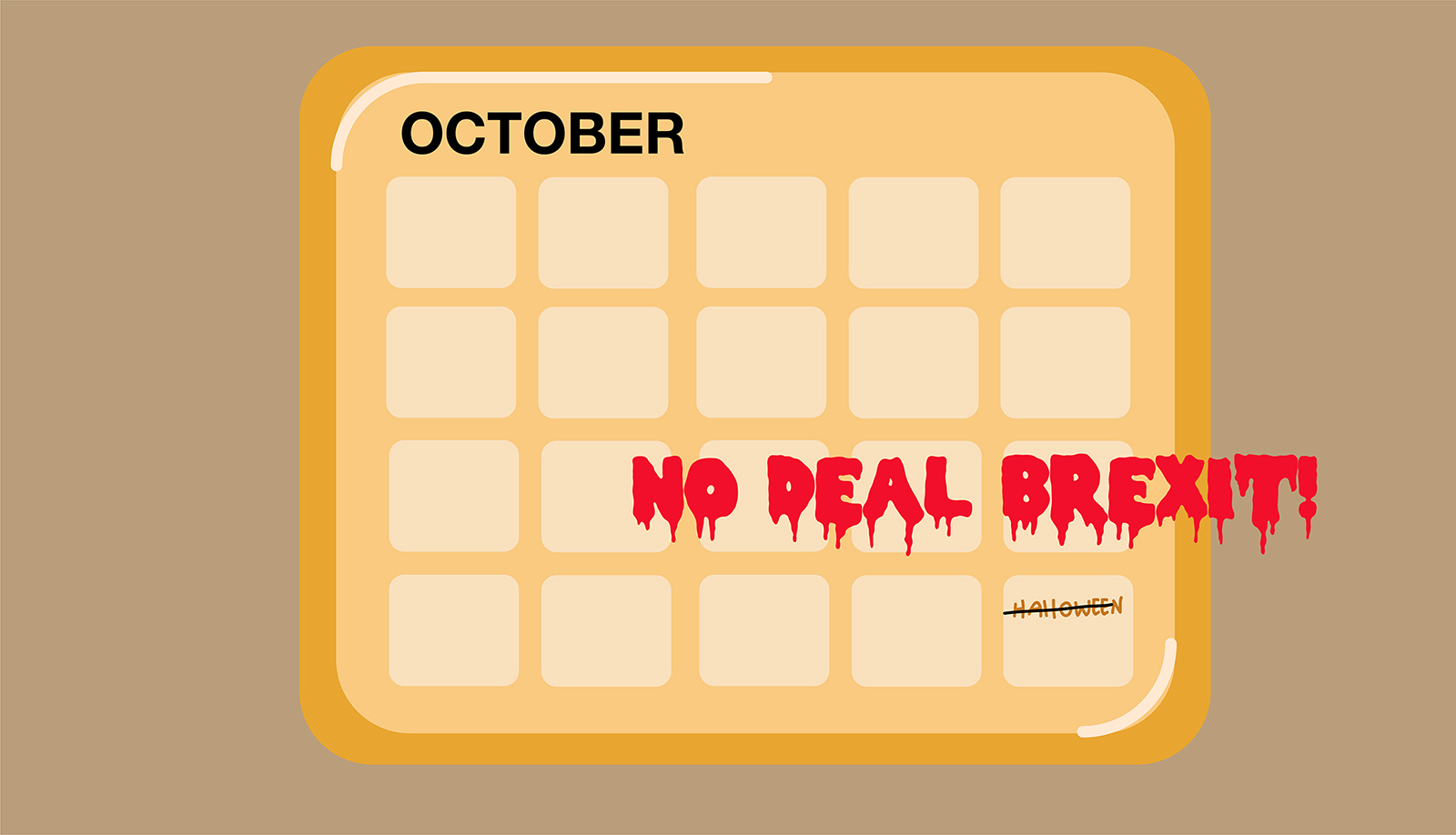It may not be a coincidence that Brexit, the United Kingdom’s planned exit from the European Union, is scheduled for Oct. 31, which, as you know, is also Halloween.
In fact, Brexit is a pretty scary prospect for my family and friends back in my native Northern Ireland (NI). Their fears are not unfounded: a Sept 04 report by the Canadian credit ratings agency DBRS suggests that if the UK crashes out of the EU on Oct 31 it could “inadvertently lead to the breakup of the Union” – (namely the UK) by increasing support for Scottish independence and the unification of Northern Ireland with the Republic of Ireland.
The prospect of a breakup of the UK is a serious matter: even casual students of history know that the birth or death of a nation is usually a very messy business.
A potential flashpoint would be the border between Northern Ireland and the Republic of Ireland (ROI). Since 1973, when the UK and the ROI joined the EU, people and goods moved freely across the border. However, if a no deal Brexit leads to a NI-ROI border with infrastructure – fences, passport and customs posts. This so called “hard border”, in confirming the 1921 partition of Ireland would become a target for the catholic paramilitary IRA (Irish Republican Army). IRA attacks on border infrastructure would mean reprisals on the catholic community by the protestant paramilitary UVF (Ulster Volunteer Force). British military intervention to separate the two sides could revive the shooting war that lasted from 1969-1998, reports the BBC.
Bertie Ahern, former PM of the ROI, in an article for Irish Examiner expressed how the Irish feel about a hard border: “They fear that any infrastructure at the border equals trouble, disagreement, Army, soldiers, police. Some of it might be exaggerated but there is that fear of the slippery slope. It is something that really worries people.”
Irish people are angry and frustrated by what they see as the UK’s cavalier attitude towards Ireland as Irish Journalist Una Mullally writes in The Guardian, “With every bungled stage of Brexit, there is a dismayed head-shake about the fact that this is the first century where all of Ireland isn’t under British rule, yet still Britain finds a way to screw us. When Britain sneezes, we catch the cold.” Of course it’s not just about the Irish and the NI-ROI border. About 3 million EU citizens established in the UK may have to rethink their futures after Brexit. Polish citizen Niko Cichowlas who runs a London based construction company explains: “When I hear the guys talking, they feel that the British are turning against them, they feel this rightwing antagonism, and some of them end up becoming quite anti-British themselves – the process works both ways. They feel under attack, it is very sad.”
The crazy thing is, Brexit didn’t have to happen. It only came about because of a throw away promise made during the 2015 UK election campaign by UK Prime Minister David Cameron. He said he would hold a referendum on EU membership if his party was re-elected. Probably, when he made the promise he just couldn’t imagine that on June 23 2016, 17.4 million UK citizens (52 pc of eligible voters) would vote to leave. In this way, a casual election promise led to the UK’s biggest political and constitutional crisis in half a century.
There may be some hope of a last minute deal to take the UK out of the EU in an orderly manner. Following their October 10 meeting in Liverpool, the Irish PM Leo Varadkar and the UK’s Boris Johnson stated they could see “a pathway towards a possible deal.” I hope so — Halloween isn’t far away and there’s already too much scary stuff happening in the world without tacking on a disorderly Brexit.
Graphic by @sundaeghost




